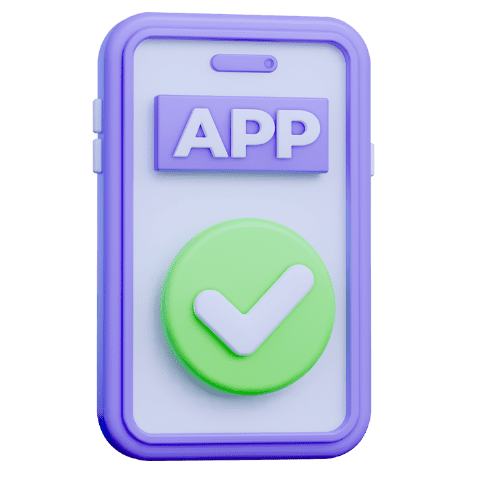I’ve been talking to a man that claims he is a doctor working for the UN and he keeps asking for my help, how do I find out if he’s real? I have photos
If you suspect that you’ve been a victim of identity theft and fraud, especially involving a platform like ID.me, and you have evidence suggesting deliberate actions, it's critical to take immediate steps to address the issue. Here’s a structured plan to handle this situation: Steps to Take: 1. GathRead more
If you suspect that you’ve been a victim of identity theft and fraud, especially involving a platform like ID.me, and you have evidence suggesting deliberate actions, it’s critical to take immediate steps to address the issue. Here’s a structured plan to handle this situation:
Steps to Take:
1. Gather and Secure Your Evidence
Collect all correspondence, screenshots, emails, or any other records related to your ID.me account and the alleged fraud.
Document the timeline of events to clearly outline what happened.
2. Contact ID.me Support
Reach out to ID.me’s support team with your evidence and request a detailed investigation. You can do this through their official website or contact channels.
Be firm but polite, explaining why you believe the internal takeover claim may not be accurate.
3. File a Complaint
If ID.me does not resolve the issue to your satisfaction, file a formal complaint:
Federal Trade Commission (FTC): Visit IdentityTheft.gov to report identity theft and create a recovery plan.
Better Business Bureau (BBB): File a complaint about ID.me’s handling of your account.
4. Notify Relevant Authorities
Local Law Enforcement: File a police report about the fraud. This can be helpful for future claims and disputes.
Financial Institutions: If the fraud has impacted your bank accounts or credit, notify your bank and creditors immediately.
5. Monitor and Protect Your Identity
Place a fraud alert on your credit file with major credit bureaus (Equifax, Experian, TransUnion).
Consider a credit freeze to prevent new accounts from being opened in your name.
Use a credit monitoring service to keep track of any suspicious activity.
6. Review and Strengthen Your Accounts
Reset passwords for all accounts, ensuring they are strong and unique.
Enable two-factor authentication (2FA) wherever possible.
Review activity on your other online accounts to ensure they haven’t been compromised.
7. Seek Legal Advice
If you believe the fraud was deliberate and you have evidence to support your claim, consider consulting with an attorney who specializes in identity theft or consumer protection.
An attorney can help you assess the viability of taking legal action against ID.me or other involved parties.
8. Report to Consumer Protection Agencies
Report your concerns to the Consumer Financial Protection Bureau (CFPB) if financial accounts were involved.
If applicable, report to your state attorney general’s office.
Tips for Communicating with ID.me
Be Specific: Clearly outline your evidence and why you believe the takeover was deliberate.
Ask for Escalation: Request to speak with a higher-level representative if initial support is unhelpful.
Follow Up Regularly: Don’t let the issue fall through the cracks—keep following up until you receive a resolution.
What to Avoid
Don’t share sensitive information over unverified channels.
Avoid delays in reporting and securing your accounts, as time is critical in fraud cases.
If you provide more details about the evidence or the events, I can offer tailored advice to help you address the situation effectively.
Thanks for using Verify Scams Platform.
See less




 Support our INITIATIVE
Support our INITIATIVE







Hi, This situation has several potential warning signs of a scam or malicious intent. While it's not guaranteed that the person is a hacker, here are some critical points to consider: *Red Flags: Unsolicited Contact: Receiving a message from someone you don’t know, especially claiming to have obtainRead more
Hi, This situation has several potential warning signs of a scam or malicious intent. While it’s not guaranteed that the person is a hacker, here are some critical points to consider:
*Red Flags:
Unsolicited Contact: Receiving a message from someone you don’t know, especially claiming to have obtained your number from a “friend,” is suspicious.
*Business Account: The person is using a WhatsApp Business account, which can be set up by anyone. Scammers sometimes use these to appear legitimate.
*Vague Backstory: The claim that they’re from the U.S., new in South Africa, and got your number through a friend is a common tactic to build trust while remaining vague.
*Cultural Mismatch: The name “Beatrice” and the claim that the person is from Nigeria could be part of a strategy to seem relatable or trustworthy. This mismatch may be designed to confuse or disarm you.
*No Clear Purpose: If the person has no clear reason for contacting you and offers no meaningful explanation, it’s a red flag.
Potential Risks:
*Phishing or Scams: They might try to manipulate you into sharing personal information or money.
*Social Engineering: They could be trying to gather details to use in further scams or identity theft.
*Malware Links: They may eventually send malicious links or attachments designed to hack your device.
What You Should Do:
Don’t Share Personal Information: Avoid revealing any personal details, such as your address, occupation, or financial information.
Be Skeptical: Ask yourself why a stranger would contact you. Legitimate introductions usually involve clear, verifiable reasons.
Check for Signs of Authenticity:
*Ask for the “friend” who allegedly shared your number.
*Verify their identity by requesting specific details or a video call.
*Avoid Clicking Links: If they send links or attachments, do not click on them. They could be malicious.
*Block and Report: If the conversation feels suspicious or uncomfortable, block the contact and report them to WhatsApp.
Update Security:
*Ensure your phone and WhatsApp are updated to the latest version.
*Use two-step verification for your WhatsApp account for added security.
*Trust Your Instincts: If something feels off, it probably is. It’s better to err on the side of caution and disengage rather than risk exposing yourself to potential harm.
Thanks for Using Verify Scams Platform.
See less